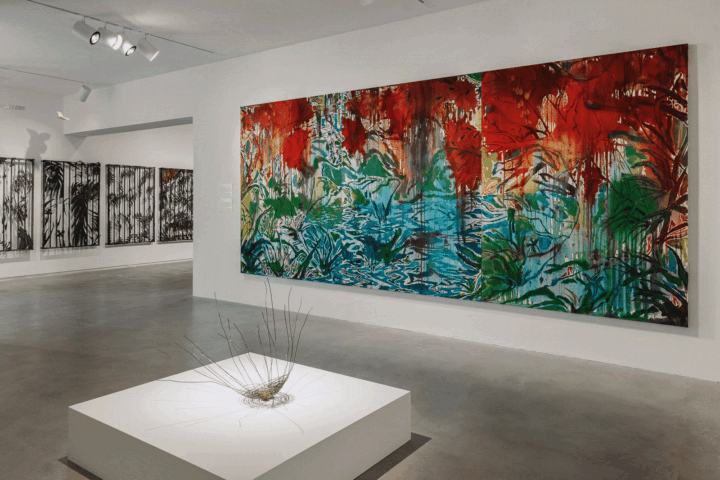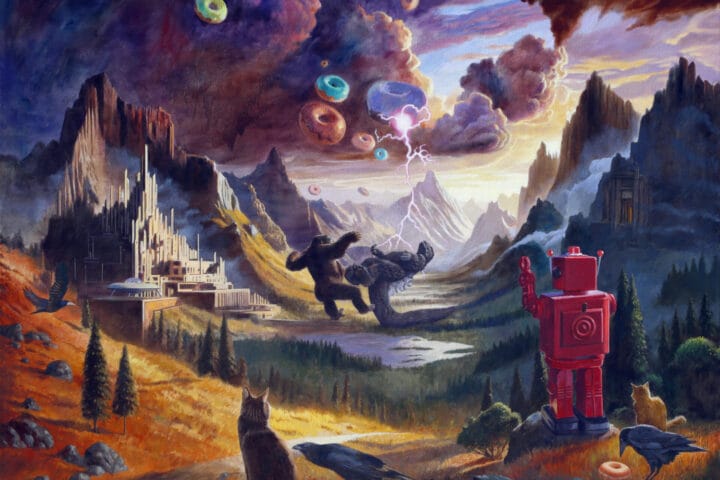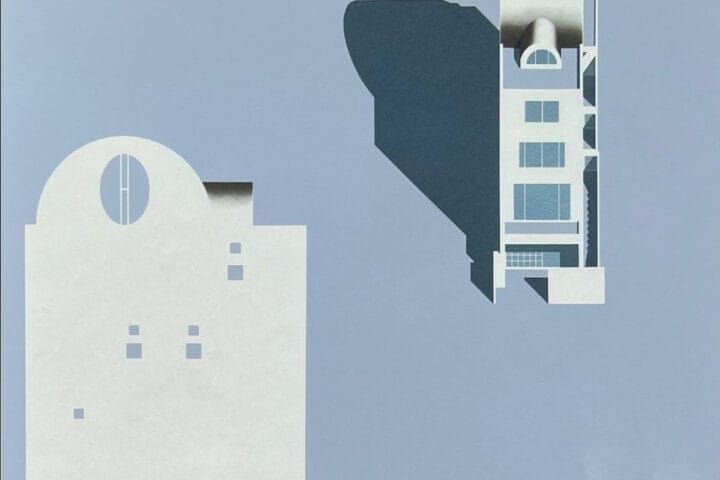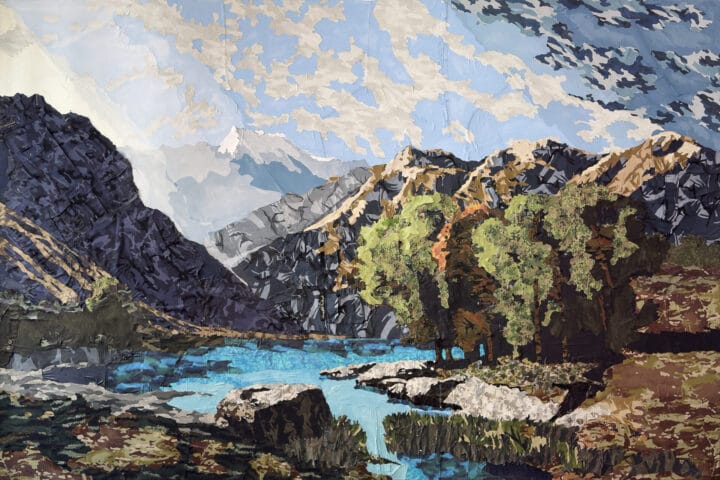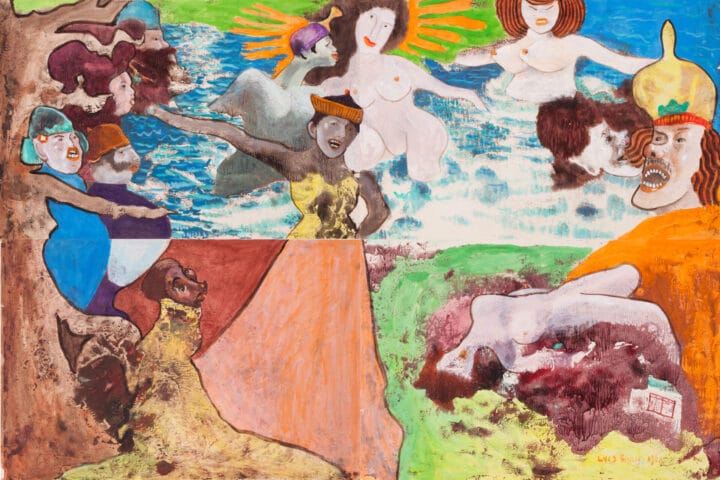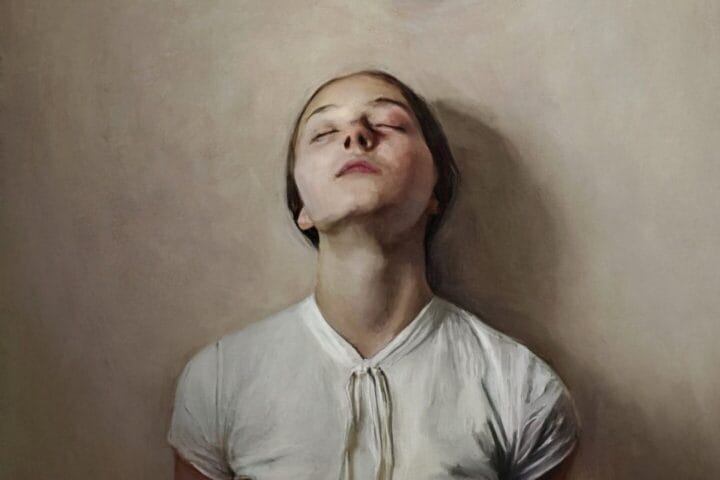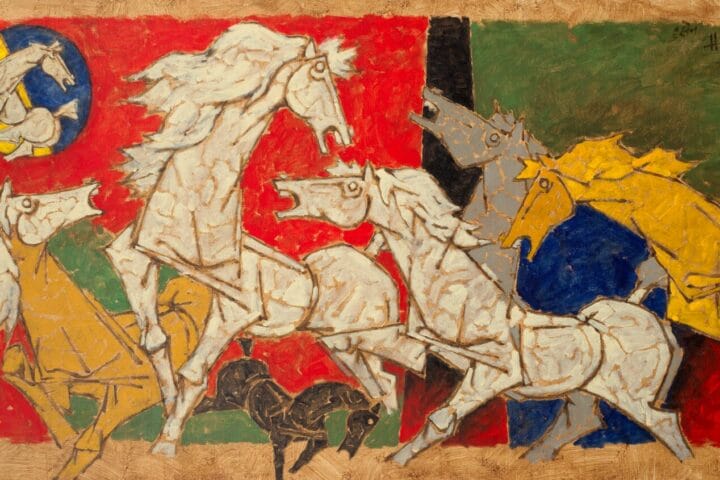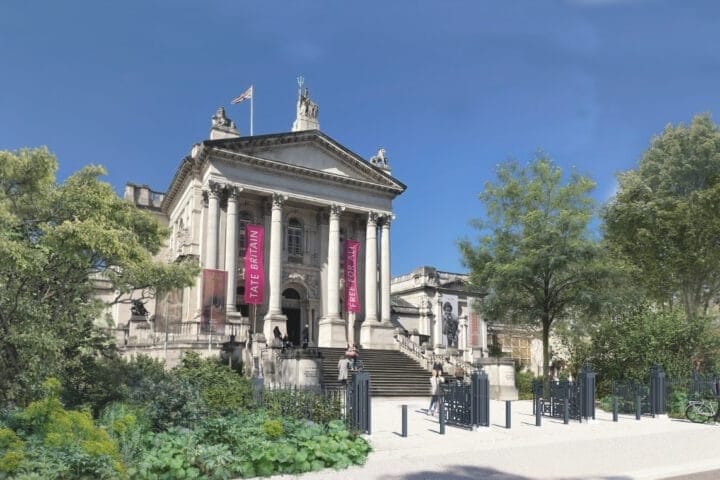Jack Shainman Gallery is pleased to present Down Here Below, a solo exhibition of work by Carrie Mae Weems and the artist’s fourth exhibition with the gallery. Drawing from new works and select early series, the show consists of several large-scale installations that highlight Weems’ decades-long engagement with injustice, identity, and redemption. Activism is central to Weems’ practice, which investigates race, family relationships, cultural identity, sexism, class, political systems, and the consequences of power. Through her work, Weems demands reconsideration of predominant narratives throughout our history.
As one enters the gallery, two contemplative and celestial works, North Star (2021) and Down Here Below (2019), introduce a space for reflection. Following these pieces, Weems presents new, nearly abstracted photographs taken in Portland, Oregon, in the wake of mass protests last year, when many cities were shuttered, closed off, and boarded up. Despite their immediate historical moment, the images could be without time or place, creating a haunting environment that makes visible our memory, pain, and grief.
This is the first presentation in New York City of Weems’ seminal work, And 22 Million Very Tired and Very Angry People (1990-1991), since it was exhibited at the New Museum in 1991. The installation includes fifteen unique large-format Polaroids, each presenting a quotidien but evocative subject—a water glass, a globe, a rolling pin, a sickle—captioned with short phrases. With her words, Weems plays with the relationship between image and text to complicate and deepen the associative and symbolic meanings of the object, an enduring idea in her practice. Both individually and as a whole, the works offer various tools and conditions necessary to enact revolutionary change and protest. In the curatorial essay from the New Museum, Laura Trippi reflects that this work “indicates ideas of handmade revolution, of the efficacy of individual actions within a monolithic system, and of the possibility of individual actions linking up with others in a larger struggle, that are the installation’s main themes.”
The Push, The Call, The Scream, The Dream (2020), versions of which were recently shown at the Logan Center for the Arts at the University of Chicago and Artes Mundi 9 in Cardiff, Wales, was first created in response to the death of civil rights leader and United States Representative John Lewis. This multi-part installation focuses on moments of collective mourning, protest, and action. A master of riffing and recontextualization, Weems references her own earlier works and uses archival images including Charles Moore’s historic photographs of the 1963 Children’s Crusade in Birmingham, Alabama, and photographs from the funeral of Medgar Evers, an event of profound outrage, sadness, and violence. The works, some tinted in pink and blue, evoke a sense of tenderness and care and draw a throughline from the past to the present to confront the viewer in our current moment.
A final large-scale installation, Repeating the Obvious (2019), reiterates at various sizes the same image of a hooded figure from Weems’ 2016 series, All the Boys. Here, Weems looks again at criminality and the Black body, and the implications of the seemingly endless murders of Black people by police in the context of the Black Lives Matter movement. The redundancy of the image powerfully articulates the ongoing racial violence and depersonalization of its victims, while potently inverting stereotypes. The figure appears almost dream-like, emerging from our collective memory of those lost to racial violence and those yet to come. Placed in front of this immersive installation, Seat or Stand And Speak (2021), which was created for Weems’s recent exhibition, The Shape of Things, at the Park Avenue Armory, asks the viewer to listen or take action—to contemplate or effect change. Centered in the space, the sculpture stands as an invitation to find one’s own voice and be heard, while highlighting the dichotomy of our collective passivity and silence. As Aruna D’Souza says in her review of The Shape of Things in the New York Times, “the artist traces our current national predicament, with ever-present anti-Blackness and eroding democracy foremost among many woes, while reminding us that what we’re seeing in our political landscape is nothing new. In fact, she’s been telling us about it for decades.”
Carrie Mae Weems (b. 1953 Portland, OR; lives and works in Syracuse, NY) is widely renowned as one of the most influential contemporary American artists living today. Over the last four decades, Weems has developed a complex body of work employing text, fabric, audio, digital images, installations, video, performance and photography. She has participated in numerous solo and group exhibitions at major national and international museums including the Metropolitan Museum of Art, New York, The Frist Center for Visual Art in Nashville, Solomon Guggenheim Museum in New York, and the Centro Andaluz de Arte Contemporáneo in Seville, Spain. Most recently, in December 2021, Weems presented The Shape of Things at the Park Avenue Armory, New York. An in-depth retrospective, The Evidence of Things Not Seen, will be on view at the Württembergischer Kunstverein Stuttgart, Germany from March 12 – July 3, 2022 and will travel to Kbr Fotocolectania in Barcelona, Spain.
Weems is represented in public and private collections around the world, including the National Gallery of Art, Washington D.C., Metropolitan Museum of Art, New York; The Museum of Fine Arts, Houston; the Museum of Modern Art, New York; Museum of Contemporary Art, Los Angeles; and The Tate Modern, London, among others. She has also received many awards, grants, and fellowships, including the prestigious Prix de Roma and The National Endowment of the Arts, and in 2012, Weems was presented with one of the first US Department of State’s Medals of Arts in recognition for her commitment to the State Department’s Art in Embassies program. In 2013 Weems received the MacArthur “Genius” grant as well as the Congressional Black Caucus Foundation’s Lifetime Achievement Award. Carrie Mae Weems has been deeply committed to activism throughout the pandemic. Her public art campaign “Resist Covid/Take 6!” has been displayed in multiple locations to bring attention to the outsized impact of COVID-19 on Black, Latino, and Native American communities.
Concurrently on view at our 524 West 24th Street space is Genesis, an exhibition of work by Ifeyinwa Joy Chiamonwu, and This Tender, Fragile Thing opening at The School | Jack Shainman Gallery on January 15, 2022. Upcoming exhibitions include Barkley L. Hendricks, In the Paint at our 513 West 20th Street gallery, and Claudette Schreuders at our 524 West 24th Street space, both opening February 24, 2022.

